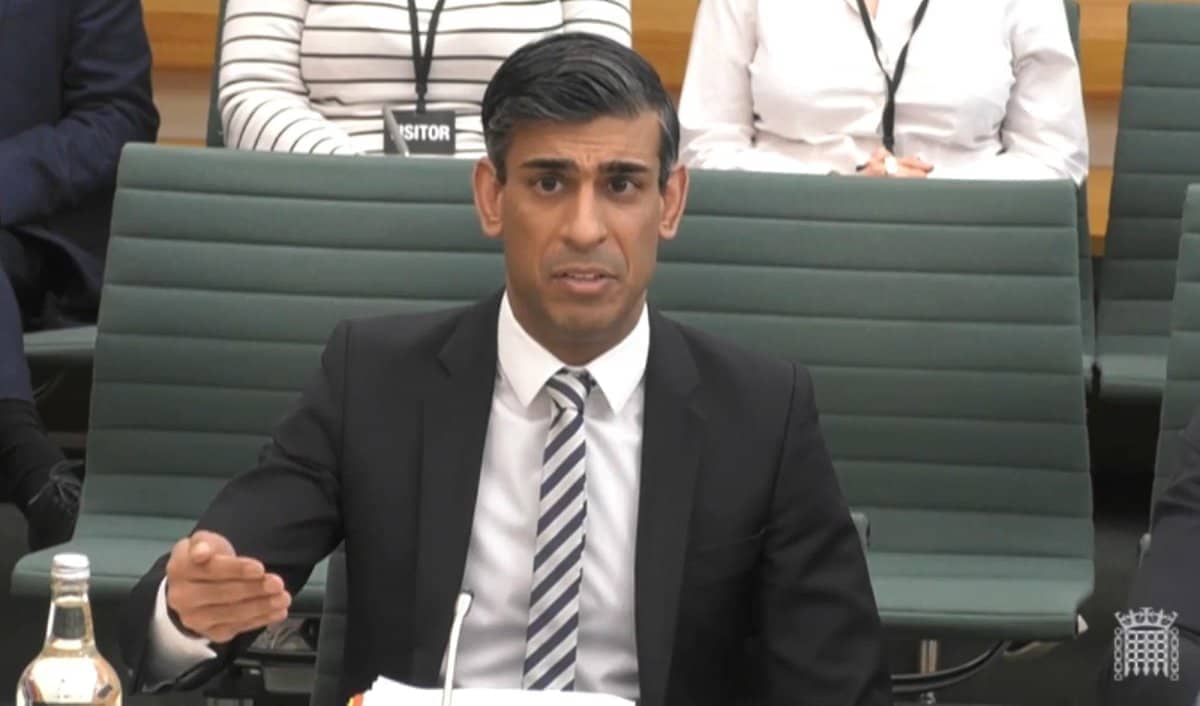After unveiling his spring statement on Wednesday, Rishi Sunak found himself under attack from all sides: his personal approval ratings dived amid a media backlash and criticism from his own side. So, the Chancellor’s appearance this afternoon before the Treasury Select Committee on paper made for a painful session.
Over the course of several hours, the committee of MPs quizzed him on whether he thought people were ‘stupid’ when it came to his pre-election tax cut, the impact of Brexit on trade and why he had borrowed a Sainsbury’s worker’s Kia for a publicity shot. When it came to the latter question, Sunak admitted that his team has asked a supermarket worker to lend their car for his spring statement photo-op to mark the five pence cut in fuel duty. He said that rather than a Kia, the car he used at home was a Volkswagen Golf.
‘From this point forward my priority is to keep cutting taxes, not to increase public spending’
So, what of Sunak’s defence of his spring statement measures? First, in a sign that Sunak is undeterred by much of the criticism so far (including calls for more help for the most vulnerable), the Chancellor reiterated his comments made to MPs last week. Sunak said: ‘From this point forward my priority is to keep cutting taxes, not to increase public spending.’ This comes as pressure for more spending grows. He also suggested there would be no new help on energy until the autumn – despite pressure to move more quickly. Sunak said there was too much volatility in the energy market to work out what help will be needed this early on.
As for calls on the right to cut more taxes more quickly, Sunak responded to a question from the Conservative MP Kevin Hollinrake. He asked why borrowing more now, using the money to cut taxes and therefore getting the economy going wasn’t an option. The Chancellor said that when he had first began in the role, there were many voices, including on the Tory side, pointing to low-interest rates and telling him ‘that’s exactly what I could do – it’s going to stay like this forever’. He said he had always been sceptical of this – adding that the rising inflation and interest rates had confirmed his view that continuing to borrow is not risk free. Sunak added that if he continued to borrow, it could lead to mortgage rates rising and pain for those on the property ladder.
So, then, what of that promised tax cuts? Many commentators have dismissed it as a cynical election ploy that will do nothing to help with the cost of living crisis right now. Labour MP Siobhain McDonagh pressed him on this point, asking if he thought ‘people were stupid’ and wouldn’t see through this. The Chancellor insisted that it wasn’t unusual to pre-announce a measure and said it was important to signal the direction of travel. He also disputed the idea he had described himself as a tax-cutting chancellor.
A more sympathetic question came from the Tory side with Harriet Baldwin asking the Chancellor whether he considered himself to be an unlucky chancellor. Mel Stride suggested the panel could all agree the answer was yes. Sunak refused to go that far, instead saying ‘it is what it is’ before pointing out that he had to deal with ‘very difficult and unprecedented’ things early on in the form of the pandemic and now Ukraine. It’s this volatility that is only confirming Sunak’s view that fiscal discipline is the order of the day – whether his party likes it or not.







Comments